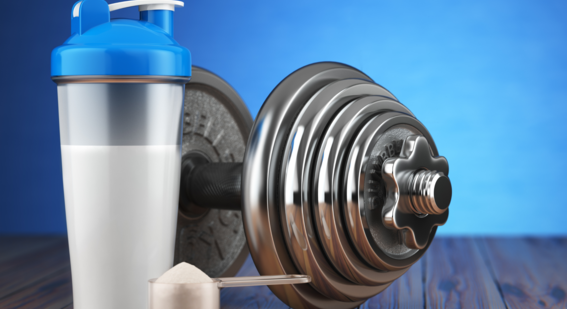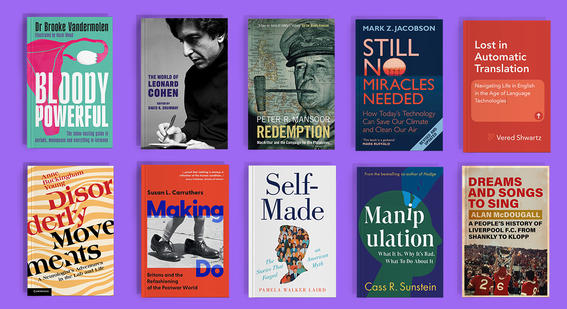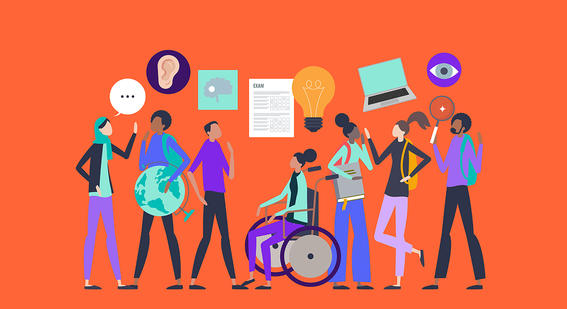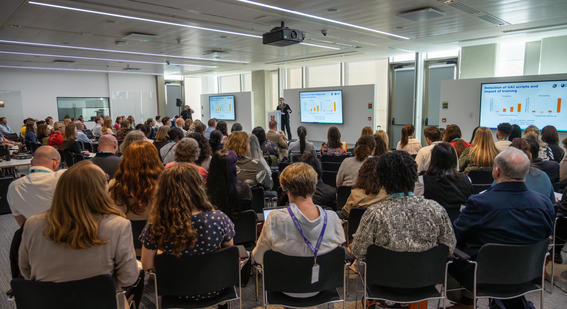Girl power! Women working in sustainability
This International Women and Girls in Science Day we hear from women who work for or with us on the science, technology and innovation that will help to push forward the implementation of the UN Sustainable Development Goals.
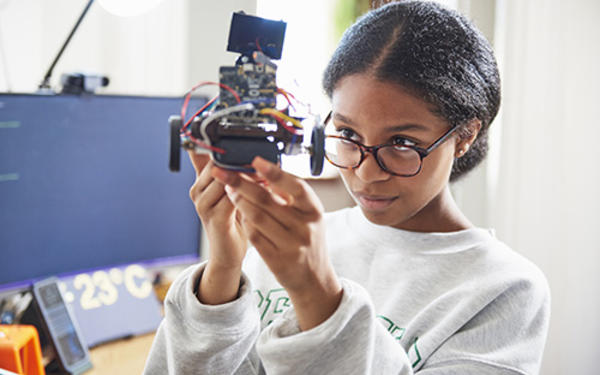
“Even today, children asked to draw a scientist do someone who looks a bit like Einstein,” says Bethan Foulkes, subject advisor for GCSE sciences. “That’s got to change.”
One reason for this stereotyping, and why girls may lack confidence in learning science, technology, engineering and maths, is that children may not have women role models doing these jobs research carried out by Microsoft Europe found.
We help people across the world to realise their potential, benefiting society and the planet.
Women scientists are driving things forward here at Cambridge University Press & Assessment. Everyone who works for and with us helps us live up to our ambitions and play our part in creating a sustainable future for everyone who shares this extraordinary planet.
For International Day for Women and Girls in Science, which focuses on the implementation of the UN Sustainable Development Goals this year, three of our team talk about why they love their jobs connected to sustainability.
Melody Martinez, environmental data analyst
Working out of our Manila office, Melody is responsible for collecting the data we need to track our progress towards becoming carbon zero as well as other environmental data.
She says:
“One of my favourite quotes by Peter Drucker, a renowned management expert, is “If you can’t measure it, you can’t improve it.” Having good data and insights definitely makes a big difference, and this is where data science is crucial. Data are simply facts or figures and do not carry any meaning until processed, interpreted, converted into information and turned into actionable insights.
“I am developing new tools to gather data on our energy use, travel, paper consumption and other activities that can generate greenhouse gases alongside helping us to report on a wider range of sustainability metrics that will set and then track our progress on our targets, such as achieving carbon zero.
“Telling a story with data helps us recognise where in our business processes or within the supply chain we need to make changes to reduce our scope three greenhouse gas emissions. Emissions from printing, for example, do not only relate to the paper; the electricity used is also significant and that may vary depending on the location as each country has different energy sources.
“Our carbon calculation tool will be rolled out this year and a team of data gatherers around the world will plug in the data directly into the system. Having a structured framework is significant in reporting: we must define what to report and how to report it and ensure that all material topics are relevant, reasonable and appropriate. Once this is achieved, then we can make objective, data-driven decisions to plan, innovate or change behaviours.
“What I love about being a data analyst is that I get to solve difficult problems, especially problems that have not been resolved before. Data science is a new industry and it keeps evolving, which means your skillset will evolve too. Seeing how I'm contributing feels truly rewarding, much more if you see the impact not just within your organisation but around the world you live in.”
Does data science help or hinder how we respond to the incredible transformation of the earth’s social and environmental systems? Find out more
Amy Fisher, teacher
Amy teaches marine science at Wentworth College, New Zealand, part of our global community of schools where pupils take one of our international qualifications that are recognised by the world’s best universities and employers.
She says:
“My passion for marine science I do believe stemmed from growing up along the south coast of England, playing around in rock pools with my siblings and then later on learning to sail and windsurf and paddleboard. I have a real affinity for the ocean and I love to share that passion with my students.
“The Cambridge International marine science course is hugely topical for our students. Our location along the Whangaparāoa peninsula allows us to go and explore the rocky, muddy and sandy shore and make comparisons between these different locations and process that data back in the classroom.
“The practical nature of the course allows those kinaesthetic learners to really engage with their course content but equally those students who are more academic focus and prefer to use a textbook – we've got an excellent textbook resource that we can use.”
Watch Amy talk about her role on our international education YouTube channel
Bethan Foulkes, subject advisor
Bethan’s job is to support and advise teachers who are teaching GCSE Sciences and Cambridge Technicals. Subject advisors are the link between teachers and our UK exam board OCR.
She says:
“I have a biology and psychology degree, which was very intentional as I wanted to be a biology teacher. I had had a very wonderful biology teacher myself, she's very inspirational. I liked the idea of doing the same, inspiring students to love biology.
“Part of the reason I love biology is that you can see it. Some students find it quite hard to visualise some aspects of science, whereas they can find it easier in biology as you can see it happening. And there's always quite up-to-date things in the news we can talk about to help bring it to life.
“For example, we can see natural selection in action with the peppered moth. These moths used to be quite commonly a silvery colour to blend in on the nice silvery bark of birch trees. Then industrial revolution came along and the ones that were silvery stood out on soot covered trees and birds would eat them. Now cities tend to have more dark speckled moths, but as the trees and air gets cleaner, this is being reversed, and there is a resurgence of the silvery ones.
“Some of the students I had were very, very switched on to environmental problems, so it’s good to be able to use examples like this that show change can be quick. We're at a point in time where there is a lot of discovery, a lot of development in our understanding of biology, there's still a lot to learn. Just think about genetic engineering and how it's changed in time we’ve been alive. There are so many possibilities.
“Knowing about biology doesn't mean that you have to go off and be a scientist. Take COVID for example: it could just be you understand how vaccines work; you are a more informed citizen.
“One of the things I’m working on is bringing more diversity into our biology offer. I’ve discovered a wide range of scientists I just didn't know of who’ve done amazing things, and we can help teachers bring these achievements into the classroom.
“Brain cell researcher Ben Barres was a huge champion of equality in science. When presenting discoveries he’d made before transitioning gender, he often found these were dismissed just because the research was carried out by a woman.”
Read our OCR team's selection of six inspirational women scientists
World-leading researchOur publishing and learning materials enable learners, teachers and communities to engage with world-leading research and thinking on sustainability issues. We’ve recently published the work of three women scientists involved in climate change research:
Kavya co-authored a chapter in a book recently published by Cambridge Unviversity Press. It is about the impact of climate change on cities in India where the poorest communities are exposed to disproportionate risks from inadequate water, housing, sanitation, drainage, and solid waste management facilities.
Kari’s research focuses on environmental problems and the ways in which they transform global politics. As a co-author of 'The IPCC Under the Magnifying Glass', Karen writes about what others can learn from the Intergovernmental Panel on Climate Change as well as where it could do better.
Catherine makes the case that humanity’s response to climate change in ancient history probably isn’t a good indicator of what people need to do today.
Find out more from the UN about women at the forefront of climate action
International Day for Women and Girls in ScienceWe can all do our part to unleash our world’s enormous untapped talent – starting with filling classrooms, laboratories, and boardrooms with women scientists. UN Secretary-General António Guterres
This year International Day for Women and Girls in Science focuses on the implementation of the UN Sustainable Development Goals (SDG17), specifically how to create the right conditions for making progress on:
- SDG 6 clean water and sanitation
- SDG 7 affordable and clean energy
- SDG 9 industry, innovation, and infrastructure
- SDG 11 sustainable cities and communities
To mark International Day of Women and Girls in Science last year, we took a look at some of the ways we are helping to highlight a few of the many remarkable female scientists, explore the continuing gender gap in science, technology, engineering and maths (STEM) and inspiring the next generation of women in the field.
Our approach to sustainabiltyCore to our mission as a global not-for-profit organisation is helping people to gain the knowledge and skills they need to address global, sustainability challenges such as climate change and inequality. Our strategy, culture and day-to-day operations aim to protect the environment and uphold the highest standards for human rights, labour and anti-corruption.
Read more about our approach to sustainability

